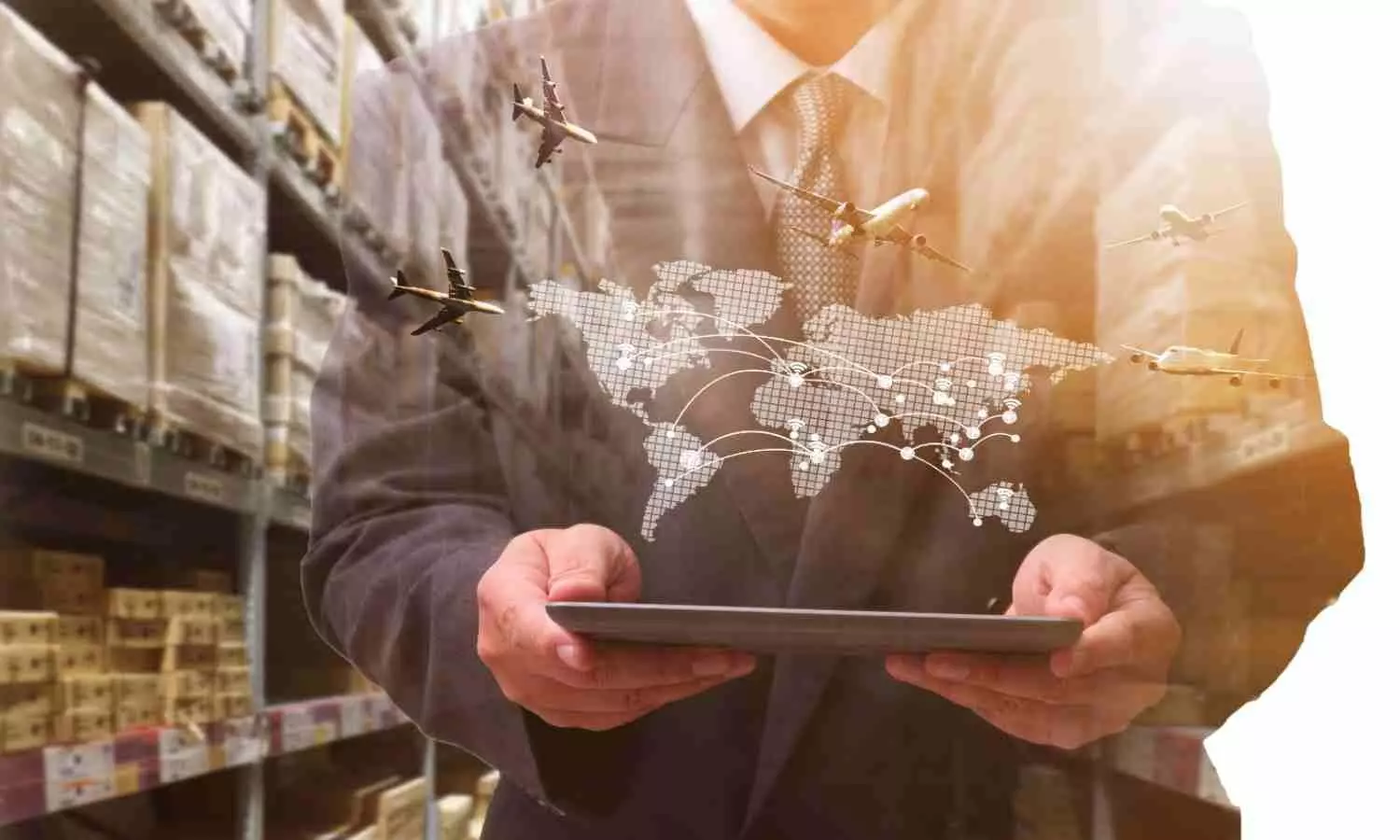
How does the role of GSSAs evolve in the digital age?
The STAT Trade Times takes a look at how the GSSAs are transforming their strategies using digital tools to remain ahead

The digital era has offered a slew of services to the General Sales and Service Agents (GSSA) industry, allowing airlines to book flights online in a matter of minutes. According to some industry analysts, the traditional sales method is still dominant today, and many airlines still use the conventional method of cargo space booking.
On the other side, several GSSAs are exploring the digital domain in order to appeal to a wider range of consumers, including developing online booking capabilities and embracing third-party portals.
GSSA plays a significant role in the growth and development of the air cargo business. GSSAs are no longer exclusively appointed as sales and marketing agents, in charge of selling air cargo space. Airlines are increasingly searching for organisations that can manage the end-to-end business activities of air cargo.
Field and market studies, research and consultancy, sales, customer service activities, space control, cargo load and flight planning, and operational support are all part of functions GSSAs do.
GSSAs' agility and quick thinking have kept freight flowing through uncertain and chaotic times. The pandemic has been difficult for everyone in the business, and it has underlined the need for GSSAs to constantly develop.
Committed to the Age-Old Method
Around five years ago, the GSSA industry, which had previously mainly represented airlines' sales and marketing, began to innovate and take on new tasks, including back office, cargo acceptance, booking, processing, and aircraft loading and unloading. Now, for smoother and faster procedures, the industry is migrating to the digital platform.
"The impact of these digital market spaces, to the GSSA role, depends on the market region and its capacity, supply and demand. In markets where the demand is in excess of capacity (ie: EX Canada) there will be very limited opportunity for these digital platforms, and in other markets where there is more capacity than demand, there could be opportunities for both airlines and GSSAs to participate in digital platforms,"says Joseph Lawrence, President, Airline Services International.
"Another factor inhibiting the use of these platforms is that our industry continues to be a people business. It is still a challenge to convince our freight forwarding customers to adopt online booking or tracking. They either have their own system and processes that they are unable to deviate from, or prefer the current process of calling or emailing to make a booking. So, while the development of online booking platforms and digital efficiencies continues to grow exponentially, the actual adoption of these efficiencies is still quite modest and slow to progress".
"It is still a challenge to convince our freight forwarding customers to adopt online booking or tracking"
Joseph Lawrence, President, Airline Services International
Digitization is a new model of selling of sales channels, to acquire in addition to what exists, but there are still some individuals who want to obtain information, bookings, straight from the GSSA by calling or sending an email.
"Customer relationships are important. We need to be there for the client and the airline partner and this takes communications, meetings and planning as changes in the supply chain are so fast paced. Even given how digital we have become since Covid, nothing can replace human contact, developed relationships, friendships. We are in a time of transition. Older generations still prefer phone or email as opposed to internet bookings where there is no human interaction. You can't follow up with an internet booking and the tracking still leaves a lot to be desired in a world of "REAL TIME" information," said Michelle DeFronzo, President & CEO, ImEx Cargo.
"Yes, digitalization is a moving target. A GSSA has two roles: one is a service agent who deals with real cargo handling in many circumstances, which is far more difficult to digitise. That is a tangible service that they must perform at times at the airport. But, in terms of becoming a GSSA, that is changing since the airlines now have new digital technologies that sales agents, or GSSAs, can utilise and sell on online cargo and combine with cargo. However, whether the GSA is digitalized enough for airlines to continue to rely on them is a developing problem. They must use caution if they continue to be quite manual. There is a chance that airlines, at least on the sales side, may be hacked. However, there is a possibility that airlines may try to sell more directly using digital technologies. So that is still evolving, said Zvi Schreiber, CEO, Freighots, a digital booking platform for international shipping.
"All digital initiatives are expected to make inroads to some level, but airlines will continue to rely on service providers like Group Concorde, who bring market experience and guarantee performance. Anyone may sell during peak season, but when the market slows down and capacity exceeds demand, it is the personal relationship that makes the difference. With the market being dynamic, we have seen a lot of volatility; changes have occurred and will continue to occur throughout the years. GSSAs not only give a sales solution, but their position in operations and other value-added services prepares the path for any airline to run smoothly," said Prithviraj Singh Chug, Director, Group Concorde.
The Attraction of Digital Space
The business activities of traditional GSSA have undergone substantial modification as a result of increased cargo numbers and expanding demand. Airlines choose a GSSA that has a technologically competent, automated, and IT-enabled infrastructure capable of handling end-to-end transactions with minimal waste.
"The traditional role of the GSSA has changed already, 'Digitization is transforming the business'. ATC Aviation launched a digital GSSA platform. We also see the trend of concentration in our industry. The bigger GSSA groups will further expand their market share. Smaller companies cannot keep up with the pace. It's going to be like in the ground-handling business, airlines will award contracts for regions rather than for countries. What we are doing and will do is much more than the traditional sales of airlines capacity. New business segments are the charter and solution business. We even started to represent on board courier companies to round up our portfolio. The customers are the same. It's a one-stop-shop," said Ingo Zimmer, CEO, ATC Aviation.
In October 2021, ECS Group positioned itself as an "augmented GSA," an upgraded GSA model based on four essential pillars: new capabilities, technology, commerciality, and sustainability.
"The passenger side made the switch to digital activity 20 years ago, and today, there is no doubt that the digital transformation work, which never happened in cargo and is only happening now, quite accelerated but 20 years after the passenger side, even with the same airline. The key changes are this phenomenon of consolidation, which is not simple to execute, but which I believe provides a lot of trends to the network. And the other element is truly the concept of turning on digitization inside our work," said Adrien Thominet, Chairman Executive, ECS Group.
"What we are doing and will do is more than the traditional sales of airlines capacity. New business segments are the charter and solution business. We even started to represent on board courier companies to round up our portfolio"
Ingo Zimmer, CEO, ATC Aviation
In recent news, BCS AIR, a subsidiary of ECS Group located in Sao Paulo, has signed a year-long GSSA contract with DHL Aviation, which will take effect on July 10, 2022, with an everyday service except Sunday, the airline will fly Boeing 767-300F from Viracopos through Bogotá/Colômbia to Miami/USA.
What the Airlines Demand
In today's changing times and cutthroat airline rivalry, the selection is based on a GSSA that demonstrates innovation and fresh approaches to traditional business.
The cost and outcomes of employing a GSSA are the two main benefits for an airline. With the GSSA infrastructure, the airline can save a lot of money and obtain better outcomes with their well-established network. As a result, the airline is always on the lookout for a highly skilled workforce to handle all of the airline's activities.
GSSAs have progressed from being agents who arrange cargo reservations for airlines to strategic partners that assist airlines in developing their business objectives.
"You really have to be flexible and adaptable to change. Many of the airlines have added pressures from competitors entering their territories and diluting their market share and lowering their rates. An airline GSSA can help by increasing their market share especially in offline station territories where there isn't as much competition. We add value to their existing services, working with their new and existing clients to ensure they are getting what they need at the local level and working within their current environment which makes them most comfortable. This allows us to help them increase their market share, revenues, and service levels providing solutions to our freight forwarding community," said DeFronzo.
"The consumer decides on the appointment at the last moment. They want the most up-to-date information on potential rate changes. So, before, the prices were issued twice a year for the summer schedule, now the people want to see if there is any possible alteration in the next week. It is quite difficult for the forwarder to plan too far in advance," says Thominet.
"This answer could vary from country to country. Customers know what they want and if you are not able to provide what they are looking for, they are not hesitant to look elsewhere for the services. If pricing is not in line with their expectations or what the market is offering, they have other options and will take advantage of these opportunities. We are, therefore, continually working with our airline partners to remain alert, flexible and agile in our responses to our customer's needs," said Lawrence.
"Customer relationships are important. We need to be there for the client and the airline partner and this takes communications, meetings and planning as changes in the supply chain are so fast paced"
Michelle DeFronzo, President & CEO, ImEx Cargo
"With changes in customer behaviour, technological trends, and trend needs, it is essential to embrace change and alter company practises. Certain client segments now have simple access to shipping services thanks to the digital market environment. As client expectations are becoming more complex, GSSA's involvement in meeting these objectives becomes increasingly vital," said Ali Evren ÖZSOY, Managing Director, Euroasian Cargo that recently extended its appointment as the exclusive Cargo Service Provider for Etihad Cargo in Italy.
GSSAs are being held to higher standards by airlines every day. They are not just looking for cargo space to fill, but also for honesty and integrity. The GSSA industry, on the other hand, is always on the lookout for ways to provide excellent customer service, whether through traditional or digital techniques.
It is inevitable that a digital platform would ultimately replace the old methods of cargo booking, particularly as the next generation of logistic experts train and develop who favour all things digital. GSSA's future will continue to develop with more demand for digital performance and KPIs with advanced AI predictability. Airlines continue to experience workforce shortages, and GSSA expectations for expanded participation and accountability will only intensify in the coming years.

